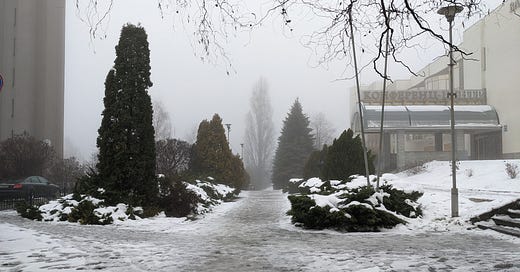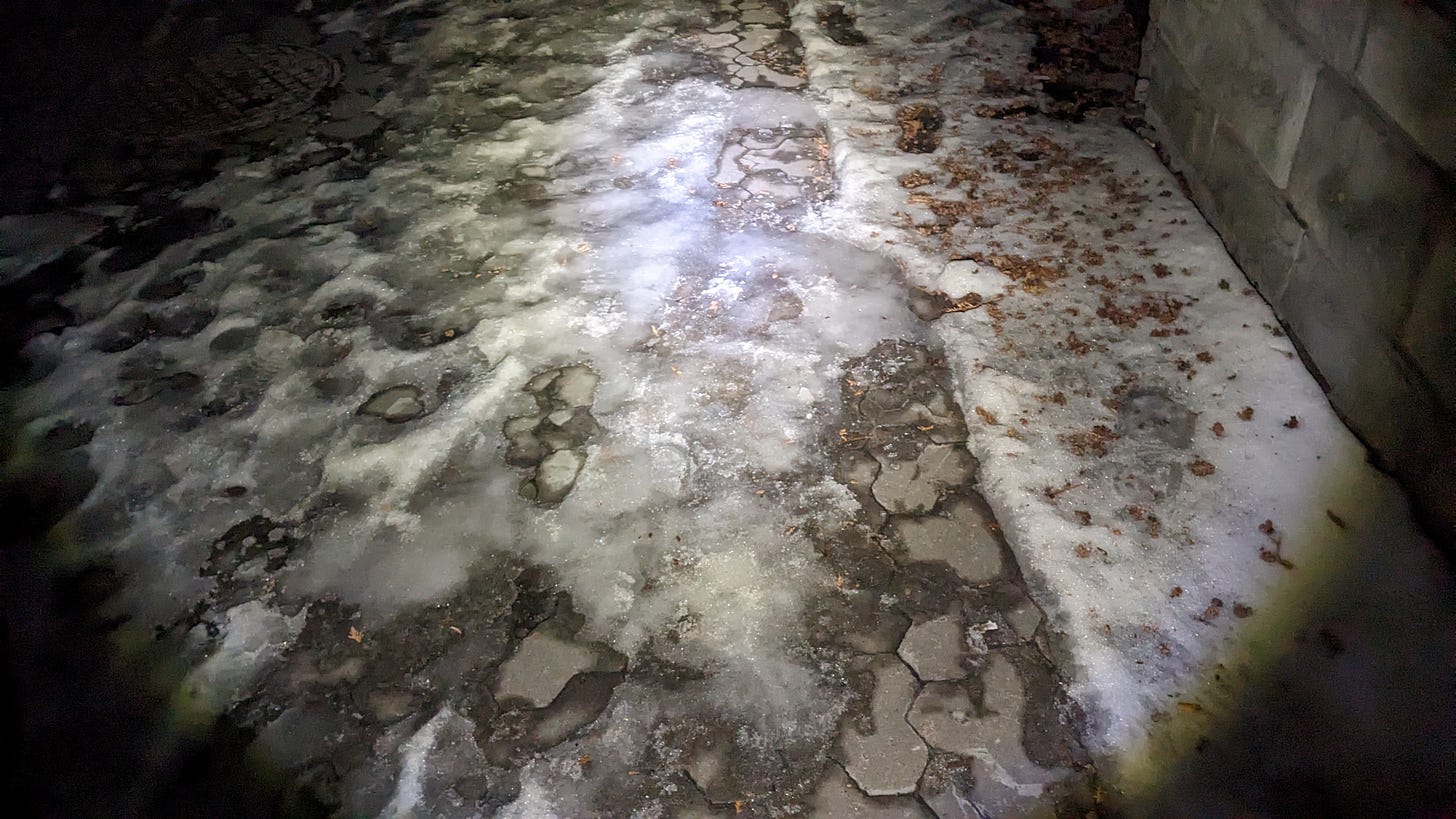Dispatch from Kyiv
It’s been a month since I moved to Ukraine. I can no longer plead jetlag, but it’s as if I’m still recovering from the four-day journey from Manila to Kyiv.
Four weeks in, I’m still feeling lethargic and out of sync. The lack of sunlight and cold weather apparently causes the body to produce more melatonin, hence the constant sleepiness. The shorter winter daylight hours are also messing with my body clock. For a morning person like me, it’s weird—wrong, even—to be still in bed at 7:30 am, but it also feels like I woke up too early even if I already slept for nine hours.
I haven’t really explored the city yet. The only other places I go to other than the office is the grocery near the hotel where I’m staying now. I sometimes eat out on weekends, but most of the time I just make do with room service or food delivery because dressing up for cold weather is more tedious than the actual walk outside.
The monotony is interrupted by an air raid alarm every now and then. When this happens, you’re supposed to go to the nearest shelter or move to a spot indoors where there are at least two solid walls between you and the outside.
There is some distance between Kyiv and country’s borders, so there’s more or less enough time to take shelter before the explosions happen. These are usually drones and missiles being shot down by the Ukrainian army. Sometimes they miss. Sometimes the debris from a downed missile or drone hits a building. Sometimes the explosions are near enough to rattle and break windows.
The air raid alarms can last from 30 minutes to several hours. On new year’s eve, the explosions lasted from the afternoon until the early hours of January 1. They were loud and deep, not like the staccato of fireworks that I’m used to hearing during this time of the year. Even if I barely slept that night, I was already wide awake at 5 am.
Equally life-threatening for me is the risk of slipping on ice. Winter boots are only good when there’s snow for traction. They’re useless when the sidewalks are covered in ice. On frozen days, my usual 30-minute walk to the office turns into a one-hour attempt to recreate the cast of Parks and Recreation’s triumphant ice rink march as locals overtake me in their confident strides and high heels.
Walking on ice becomes harder at night. By the time I get out of the office at 6 or 7 pm, the streets are pitch-black. There have been electricity cuts because of attacks on power plants, so most street lamps, signs and other outdoor lighting are turned off to conserve electricity. Armed with a flashlight, I hunt not for ghosts, but for white translucent blobs on the ground that are more menacing.
No matter how slow and careful I am when walking, I always end up slipping. I can usually recover and regain my balance, but one morning I had a particularly bad fall where I landed on all fours. The force of the fall was so strong that my backpack flew over my head and my knees felt sore for days. That same week, a colleague who also recently moved to Ukraine slipped and tumbled down an inclined sidewalk, breaking an arm.
“How do you not slip on ice? What kind of shoes should I buy?” I asked one of the local staff.
“I don’t know,” she shrugged. “You just need a strong core.”
I haven’t found an apartment yet. I’m temporarily living in a hotel that’s designated by our security unit as a safe zone. I usually like staying in a proper hotel, but the period interiors with all the brocade, velvet, gilded molding and chandeliers makes me feel like I’m in a White Lotus property. Or that I’m going to run into two identically dressed girls in the hallway asking me to play with them forever.
Staying in a hotel also adds to the feeling of not being settled in. I’m going to be in Ukraine for a year, and possibly longer if things improve. Kyiv is now my home, but I haven’t completely unpacked my suitcase. Right now, it feels like I haven’t quite moved here yet, and that I’m still trying to find my balance in the dark.





